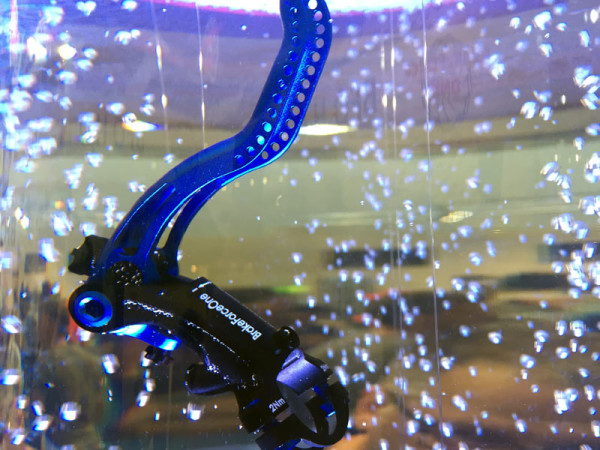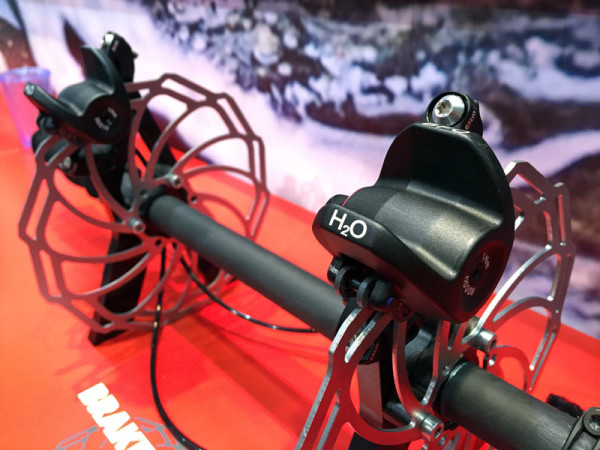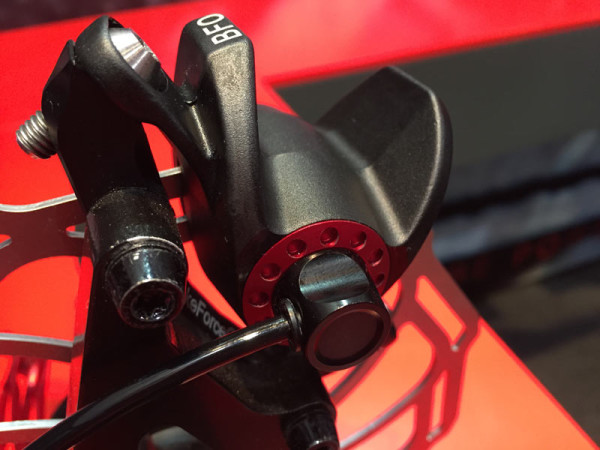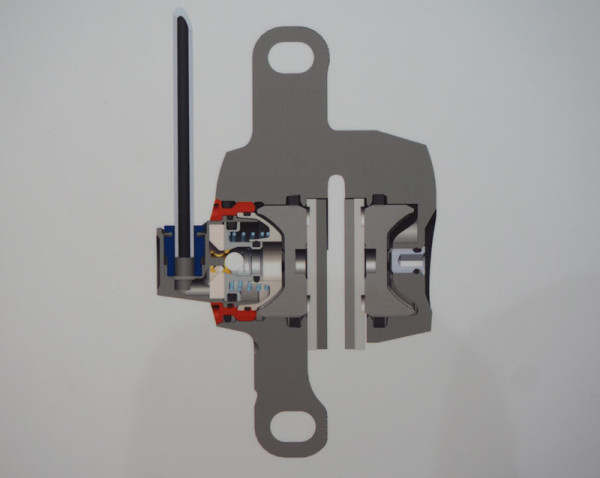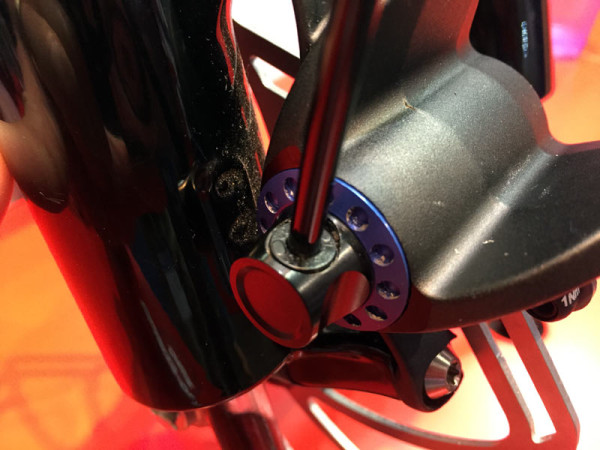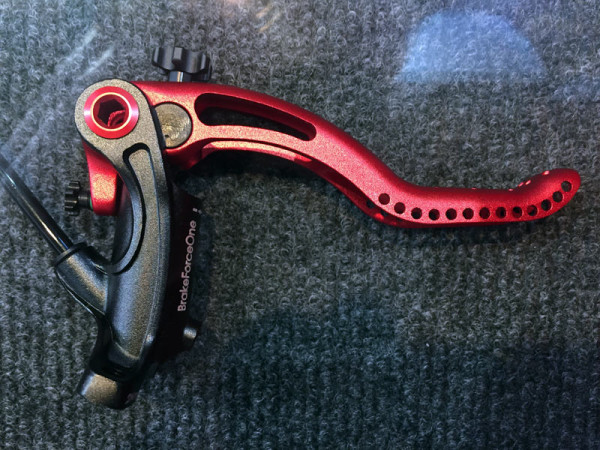Brake Force One has completely redesigned their unique hydraulic brakes to use water instead of mineral oil. The calipers still use their two step system to provide near instant engagement before ramping up the power, just in a different configuration. Still a closed system, too, because it’s a high volume lever system that can handle any expansion.
They say water makes the brake more heat resistant because it has a five times higher heat transfer rate, two times the heat capacity and less expansion under heat than mineral oil. It’s also less compressible, which is why many trials riders have used it. It’s also much more environmentally friendly.
Which begs the question, why doesn’t everyone just use water? “Everyone just imported the tech from cars,” they said, which meant a rethink was in order…
They did everything they could to heat it up, descending 1,500 vertical meters with the brakes constantly engaged and couldn’t get the water over 90°C. On the same test, mineral oil started to fade after 800m, but the water brakes felt consistent all the way down. They say there’s no way to get enough heat energy to boil it outside of the lab.
We spoke to another brake manufacturer just to get a second opinion on the concept and they said that as long as it didn’t boil, it should work, and that most common brake fluids end up absorbing water that then settles at the bottom of the system (i.e. at the caliper), which can be problematic if it boils.
So, perhaps it’s doubly smart that BFO adds 20% glycol (brake fluid, basically) to prevent freezing. Glycol raises the boiling point of water and completely mixes with it rather than separating like oil would.
While it still uses a two-stage piston system, the layout has changed from the original, putting the staged pistons directly inline with the main pistons rather than along the side.
The new design is quick to service and replace the hose, with only a knife needed to cut the hose. The quick connect valve locks the hose into place and releases it by depressing the surround (the round bit that the hose sticks into). The fluid outlet on the caliper can be rotated 360° with no tools.
Started testing with water more than a year ago, and the new caliper design started testing eight months ago. The new caliper is much stiffer, so there’s more power on tap and it’s easier to modulate. I test rode one in the parking lot and the brakes take action immediately, then ramp up quickly. After a number of stops I started getting a feel for it, but they are much stronger and more abrupt than the SRAM Guides, Magura MT8 or Shimano Race/Trail brakes I’ve been riding lately.
System weight is 188g for front brake without rotor, easily making it one of the lightest brakesets on the market.
It’s cheaper now, too, just €594 versus €780 for the original. That one will stay in production for about another 12 months then be discontinued but will continue to be cared for with warranty service. Water is their future.
